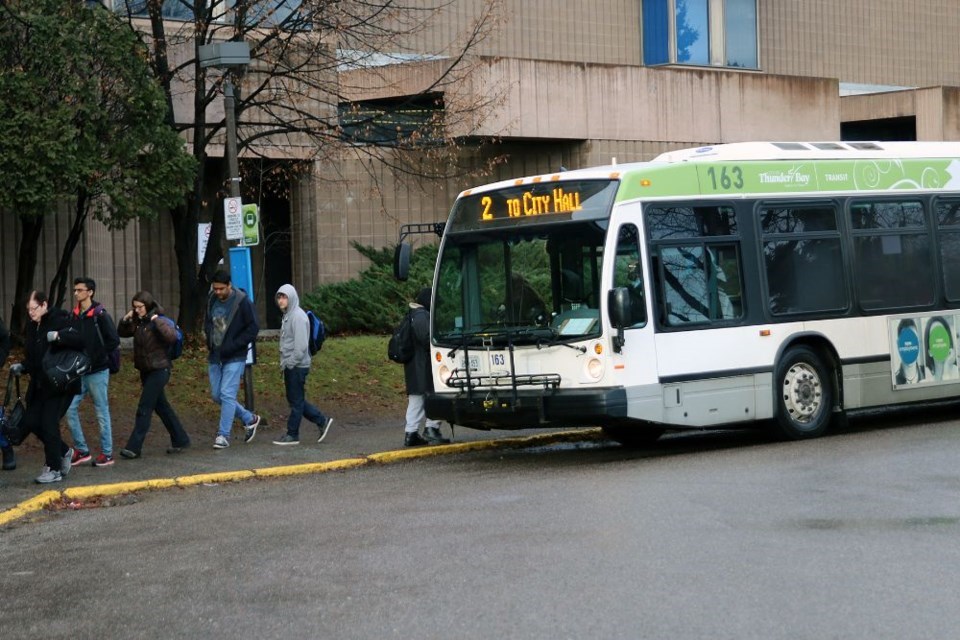THUNDER BAY — Students at Lakehead University will decide in a referendum whether to accept ongoing increases of 11.5 per cent in the cost of their annual bus passes.
Given the size of the discount they'll continue to receive, the outcome of the vote would seem certain, provided enough students cast ballots to constitute a quorum.
The U-Pass program, in place for over 15 years, provides for unlimited access to all conventional and specialized public transit services.
According to the LU student union, they're currently paying the equivalent of $18.81 a month for Thunder Bay Transit's universal bus pass for students.
Under a new contract with the city, this will rise to $20.98 in the coming school year, $23.39 the following year, and $26.08 monthly in 2026-27.
In contrast, the cost of an adult's monthly pass for members of the general public will be $87 a month starting in April.
Although the U-Pass provides bus service to Lakehead and Confederation College students at a heavily discounted rate, it also generates considerable guaranteed revenue for Thunder Bay Transit because most students cannot opt out of the deal.
All full-time undergraduate students living within Thunder Bay Transit's service area pay for the pass as a mandatory ancillary fee.
Students living outside the service area, or those with medical issues, can opt out with documentation.
Part-time and graduate students can choose whether to opt in.
In 2022-23, over 3,800 LU students were eligible for the U-Pass, and another 850 chose to opt in.
LUSU's governing documents require that a referendum be held because the pending increases are more than five per cent.
"It is essential that students have a say in large increases," LUSU president Faraz Khorsandi said in a prepared statement.
"During and following this referendum, we will continue to advocate to maintain the affordability of the U-Pass . . . while also exploring an expanded opt-out option, which we were making progress with prior to recent developments."
In an interview, he added "We are negotiating. We have been negotiating [with the city] in the past but unfortunately they didn't give us much space to negotiate this time."
Khorsandi said a lot of full-time students have access to vehicles and don't need the bus, but are still forced to pay for the U-Pass as well as an on-campus parking pass.
He said students also continue to call for increased bus frequency and improved safety, accessibility and tracking.
The referendum campaign period will be March 23 to April 5, and voting will be open from March 30 to April 5.
Under LUSU regulations, a majority of at least 20 per cent of the voting population on the Thunder Bay campus must approve the U-Pass fees in order to continue the agreement with Thunder Bay Transit.
In a similar referendum in 2017, the turnout was about 28 per cent, and the U-Pass was approved by 82 per cent of the voters.
Khorsandi said despite some ongoing concerns about service levels, he believes the pass comes at "a good price," noting that it is well-used by international students in particular.
According to Thunder Bay Transit, Lakehead and Confederation students historically constitute more than 40 per cent of overall transit ridership.
The city reached a new U-Pass agreement with the college's student union late last year.
It means the current annual full-year fee of $225.75 will rise to $251.71 next year, followed by 11.5% increases each of the following two years.
